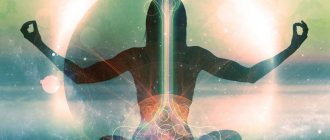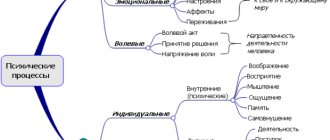2 2407 October 1, 2020 at 07:38 pm Author of the publication: Sofia Ulantikova
Who am I? What do you mean by this question? What do you call yourself? You have a name, but it is nothing more than an empty, meaningless sound. Define, name yourself, what you already have a bad idea of. What are you?
You see yourself in the mirror every day, but what you see there is not the answer. Every day you go to work, say hello to colleagues, talk to friends. You bring something into this world, and the world brings something into you. What do you mean by the question “Who am I?” External world or internal?
It’s as if everything around you, imposed from the outside, does not accurately reflect what is happening inside, when sometimes you experience sensations that come out of nowhere. It happens that a sharp, bright emotion overwhelms you for no reason at all, and sometimes, on the contrary, your palms involuntarily reach for your temples in order to squeeze them and not feel dull melancholy.
Do you want to know where all this comes from? After all, a person is more than a reflection in a mirror. But no one knows what exactly.
I am my body
This is the most naive, but completely natural version of self-perception. Every day we see our body in many mirrors, and every time - lo and behold! - it demonstrates resigned submission to our will. If you wanted to raise your hand, you did. They wanted to make a grimace - easily. The body reacts most directly to the urges of the soul, which creates the illusion of inseparability or even identity with the “I”.
An adult says this: “I’m walking,” “I’m eating,” “I’m breathing,” “I’m freezing.” And when the body experiences this or that discomfort, it states: “I feel bad, I’m suffering.” But in fact, it’s not “I” who feel bad, but only my body...
In the first months of life, a child perceives his body as something foreign, external. He plays with his hands as if they were rattles, and only after some time does he notice the difference between his limbs and the objects of the surrounding world. An adult can recall similar experiences in his memory, by analogy with the sensations in a stagnant leg, when it seems to be there, but is perceived as someone else’s.
In fact, it is quite simple to feel the separation of yourself from your body - you just need to tune in to the right mood and focus your attention correctly. For example, you can stand under a cold shower and observe that it is the body that is freezing, while the “I” can remain on the sidelines and observe the process. It may not be possible to catch the right mood the first time, but not the first time, so the second - there is nothing complicated here.
Carrying out such a separation of yourself from your body is very important and interesting, since it allows you to treat bodily discomfort more philosophically in the future and maintain peace of mind, even when the body is not entirely comfortable. That is, you can suffer from hunger, or you can mean that the body wants a snack, and at the same time not suffer at all. The second option is somewhat more constructive, right?
Here you can also remember about instincts, which are embedded in the body at the genetic level and are in no way subordinate to us. That is, we, of course, can resist our instinctive urges, but we still have no power over them, and this confrontation itself does not end well. Instinct is the voice of life itself, and trying to drown it out leads to death.
Instincts are not subject to our “I”; we can only observe them in explicit or indirect form. One could say that “I” are my instincts, and this would be a good attempt to get closer to the truth. The foundations of instinctive behavior are inherent in us by nature, and not acquired through upbringing, so they can be trusted - they will not fail, because they express the needs of what a person is in general.
But still, “I” is not my instincts and “I” is not my body. The physical shell is rather one of the conditions for the task that we all solve when we come into this world. The essence of this problem and the key to its solution lies in something else.
Right now, I'm asking myself:
– What am I doing or have done that brings me joy and true pleasure?
– What types of activities do I usually pay more attention to?
– What do I have a taste for? Where am I interested in the details?
– What can I consider myself a Master of? What do I do better than others?
– What did I like to do as a child?
– What kind of people surround me? How do they react to me? What are they teaching me? What gifts do they give? What is recommended to do?
- What is my name? When was I born (born)? After all, the name and date of birth may contain the program of our life mission.
– What is my body type? What diseases are typical for me?
– What tasks surround me? How, by solving them, can I see my purpose?
– What do they pay me for? Why does the world give me support in the form of joy, gratitude, a state of happiness?
Every time I ask myself these questions, I deepen my awareness of my essence, goals and life tasks. And I understand what internal resources will help me implement them. And how, with the help of my actions, I can make this world a little brighter and happier.
I am my mind
The next and most problematic level of misunderstanding is identifying yourself with your thoughts, with what is happening on the very surface of consciousness. The same principle of perception is at work here - “I am what I control.” The ability to manage internal dialogue creates the illusion that this is where my selfhood, my “I”, is expressed. After all, I can only take credit for my merits and be proud of them if they were the result of the expression of my free will, and not of animal instinct or psychological automatism.
In classical psychology there is the concept of “Ego”, which is considered the center of the conscious part of the personality, and novice lovers of psychological research easily fall into the misconception that “I” and Ego are one and the same. But this is very far from the truth. The ego is just an adaptation mechanism, a layer between the external and internal world. Its function is utilitarian, but by a strange coincidence, it is the Ego with all its contradictions that finds itself at the forefront, which creates the ground for all psychological problems.
Metaphor from life. We know that the ship is controlled by the captain, and if the ship were to ask the question of where its “I” is, then the correct answer would be “I am the captain” (let’s leave aside for now the romantic ideas about the ship’s own soul). But then a strange metamorphosis occurs and the ship suddenly begins to believe that it is the helm, because it is the movements of the helm that cause a change in course and thus seem to express the freedom of the ship's will. But has this ship gone crazy? Wasn't he too proud in this helm-centrism of his?
The same thing happens every time a person identifies himself with the stream of thoughts in his consciousness. Thoughts are just ripples on the water, the result of the wind blowing, but not the wind itself. Considering yourself your thoughts, equating yourself with your Ego is a legalized form of madness.
In practice, this leads to many everyday problems that cannot be solved without moving to the next level of awareness. This is exactly the point of application of strength that practicing psychologists are struggling with - it is necessary to knock the patient out of his usual confidence that to be a reasonable person means to be a healthy person.
Psychologists have even come up with a special term - rationalization, but they usually use it in a narrower sense - for example, to describe this form of psychological defense when the patient sucks out a rational rational explanation for his irrational behavior and thus avoids the need to recognize the true nature of his actions.
That is, a person commits some kind of recklessness (cheating on his wife, for example), and then, instead of coming to terms with the fact that he really wanted it, that this act reflects his true personality, he comes up with a rational “explanation” which relieves him of responsibility and allows him to continue to remain in the happy illusion that he is a respectable husband. He says, “I did it because...” and then starts lying. This is rationalization - self-deception through the logical justification of one’s actions.
In a broader sense, the rational perception of oneself leads to such an internal position - “I am what I think about myself, “I” am what I decided to be - and this is the most utter stupidity that can be.
For example, a person, having read smart articles on some website, is imbued with the logic of the reasoning given there about the relativity of any moral assessments and says to himself - “Great! From now on, I will believe that there is nothing good or evil in people, people are neutral, they cannot be judged.”
And having said this, he considers the job done: understood - that means he has changed. But as soon as a close friend slips him a big pig, he finds himself in a suspended and very contradictory state - his friend cannot be considered a bastard, after all, it was decided that there is no good and evil, but at the same time there is no way to forgive him - everything is burning inside and I want to tear this worst friend into pieces.
Here you have an internal conflict - at the intellectual level a person believes that there is no good and evil, but at the level of his emotions he continues to give out assessments left and right with the same categoricalness. And in the same way he continues to judge himself for every mistake and praise himself for every smallest victory. This creates the ground for self-doubt - real behavior does not correspond to rational ideas about oneself, how can one trust oneself?
The mind is extremely resourceful in this game of its own, and that is why psychologists dislike smart people to a great extent. If the patient's intellect is not very sophisticated, then bringing it to light is relatively simple - his logic contains a lot of obvious contradictions, paying attention to which, you can quickly lead the person to the realization that he knows nothing about himself, and make him learn yourself from scratch. But the trouble with smart people is that their logic is subtler and deeper, and it is much more difficult to destroy it.
In the same way, there are great difficulties with people who are narrow-minded, but principled - you can’t understand them at all with logic, they are not interested in it, since all their internal rationalizations are built on blind faith in certain rules and principles. These are dogmatists, and it is even more difficult to dig under them than under smart people. Well, that's not what we're talking about.
So, “I” is not my mind, not what I think about myself, not what I consider right and wrong, not my principles, not my views, not what I decided and came up with - This is all superficial nonsense, which cannot be satisfied in any way. “I” is something else that is much deeper.
Kuhn-McPartland test “Who Am I” (Modification by T.V. Rumyantseva) test in psychology
Kuhn-McPartland Test “Who Am I” (Modified by T.V. Rumyantseva)
Method “Who Am I?” is a non-standardized self-description with an open form and (in some modifications) a number of answers. The technique was proposed in 1954 by M. Kuhn and T. McPartland, and has several modifications in Russian.
The test is based on Manfred Kuhn's self-concept. The theoretical basis of the methodology is the concept of social roles and role behavior, within the framework of which the way of self-perception of a person as a bearer of these roles is specified. This fact is reflected in the self-descriptions of the subjects. At the same time, it is common for individuals to reflect on their psychological characteristics, their place not only in the social world, but also in the world as a whole. Therefore, the technique covers not only role aspects, but all spheres of a person’s ideas about his personality and its core - “I”. Most often, the following categories of groupings are used to analyze the responses of subjects: membership groups, type of relationship, main occupations, character traits, interpersonal style, aspirations, etc.
Internal structure
In general terms, the technique does not involve formalized stimulus material in the form of questions, statements, a list of qualities or pictures. Instead, the subject must make a list of characteristics of himself on a blank sheet of paper and express his attitude towards these characteristics.
Procedure
Original version
The subject must, within 12 minutes, give twenty different answers to the question addressed to himself: “Who am I?” Answers should be given in the order in which they spontaneously arise. Then he must evaluate each quality as positive (+), negative (-), ambiguous (±), or put a sign that he finds it difficult to evaluate (?).
Modification T.V. Rumyantseva
The main difference between the method as modified by Rumyantseva is the absence of strict regulation of the number of answers (the test subject can give more than 20 or less). The principles of interpretation are the same.
Instructions
Within 12 minutes, give 20 answers to the question: “Who am I?” Answers should be given in the order in which they spontaneously arise.
Then rate each of your qualities as positive (+), negative (-), ambiguous (±), or indicate that you find it difficult to evaluate (?).
Interpretation
Interpretation of the number of responses
By the number of answers given over the allotted period of time, one can indirectly judge the level of reflection of the individual. The more answers given in the allotted time, the higher the level of reflection.
Diagnosis of identities
Within the framework of the interpretation of the Kuhn-McPartland test, it is possible to determine many identities of the human personality, such as: sexual, social, spiritual, family, professional, individual, physical, etc.
Moreover, each identity can be expressed:
- Direct - the answer contains a direct definition of some identity. For example, man is an option for direct expression of gender identity. Direct expressions characterize the obvious, accepted and expressed part of the personality.
- Indirectly - the answer contains signs of one or another identity. For example, wife, student, employee are options for indirect expression of gender identity (and direct expression of family and social identity). Indirect expressions (especially in the absence of direct ones) indicate a less conscious, repressed part of the personality.
- Not expressed at all - among the characteristics there are no direct or indirect references to one or another identity. At the same time, the corresponding identity is either not developed or is very deeply repressed.
The context can be used to judge the subjective assessment of each identity. The following main options are possible:
- An emotionally positive attitude is expressed in positive characteristics: a good guy, an attentive worker.
- An emotionally negative attitude is expressed in negative characteristics: an insecure employee, an ugly man.
- A neutral attitude is expressed in non-evaluative characteristics: man, husband.
- An alienated attitude is expressed in abstract and abstract characteristics: an inhabitant of the planet, a biological being.
In addition, in diagnosing identity, the number of characteristics corresponding to each identity and the order in which they are written are important (the more characteristics of an identity and the higher they are on the list, the more important they are for the individual, the more developed the corresponding identity is).
Identification Characteristics Analysis Scale
Includes 24 indicators, which, when combined, form seven generalized indicators-components of identity:
- “Social Self” includes 7 indicators:
- direct designation of gender (boy, girl, woman);
- sexual role (lover, mistress; Don Juan, Amazon);
- educational and professional role position (student, studying at the institute, doctor, specialist);
- family affiliation, manifested through the designation of a family role (daughter, son, brother, wife, etc.) or through an indication of family relationships (I love my relatives, I have many relatives);
- ethnic-regional identity includes ethnic identity, citizenship (Russian, Tatar, citizen, Russian, etc.) and local, local identity (from Yaroslavl, Kostroma, Siberian, etc.);
- worldview identity: confessional, political affiliation (Christian, Muslim, believer);
- group affiliation: perceiving oneself as a member of a group of people (collector, member of society).
- “Communicative Self” includes 2 indicators:
- friendship or circle of friends, perception of oneself as a member of a group of friends (friend, I have many friends);
- communication or subject of communication, features and assessment of interaction with people (I go to visit people, I like to communicate with people; I know how to listen to people);
- “Material Self” refers to various aspects:
- description of your property (I have an apartment, clothes, a bicycle);
- assessment of one’s wealth, attitude towards material wealth (poor, rich, wealthy, I love money);
- attitude towards the external environment (I love the sea, I don’t like bad weather).
- The “Physical Self” includes the following aspects:
- subjective description of one’s physical characteristics, appearance (strong, pleasant, attractive);
- a factual description of your physical characteristics, including a description of your appearance, painful manifestations and location (blond, height, weight, age, live in a dormitory);
- food addictions, bad habits.
- The “Active Self” is assessed through 2 indicators:
- classes, activities, interests, hobbies (I like to solve problems); experience (was in Bulgaria);
- self-assessment of ability to perform activities, self-assessment of skills, abilities, knowledge, competence, achievements (I swim well, smart; efficient, I know English).
- “Prospective Self” includes 9 indicators:
- professional perspective: wishes, intentions, dreams related to the educational and professional sphere (future driver, will be a good teacher);
- family perspective: wishes, intentions, dreams related to family status (will have children, future mother, etc.);
- group perspective: wishes, intentions, dreams associated with group affiliation (I plan to join a party, I want to become an athlete);
- communicative perspective: wishes, intentions, dreams related to friends, communication.
- material perspective: wishes, intentions, dreams related to the material sphere (I will receive an inheritance, I will earn money for an apartment);
- physical perspective: wishes, intentions, dreams related to psychophysical data (I will take care of my health, I want to be pumped up);
- activity perspective: wishes, intentions, dreams related to interests, hobbies, specific activities (I will read more) and achieving certain results (I will learn the language perfectly);
- personal perspective: wishes, intentions, dreams related to personal characteristics: personal qualities, behavior, etc. (I want to be more cheerful, calm);
- assessment of aspirations (I wish a lot, an aspiring person).
- “Reflective Self” includes 2 indicators:
- personal identity: personal qualities, character traits, description of individual behavior style (kind, sincere, sociable, persistent, sometimes harmful, sometimes impatient, etc.), personal characteristics (nickname, horoscope, name, etc.); emotional attitude towards oneself (I am super, “cool”);
- global, existential “I”: statements that are global and that do not sufficiently demonstrate the differences between one person and another (homo sapiens, my essence).
- Two independent indicators:
- problematic identity (I am nothing, I don’t know who I am, I can’t answer this question);
- situational state: the state being experienced at the present moment (hungry, nervous, tired, in love, upset).
I am my memory
Actually, memory belongs to the sphere of the mind and consciousness, but this version of self-delusion is worth considering separately.
We have just discussed how rational ideas about oneself are structured and what problems lead to identifying oneself with these opinions, thoughts, assessments and principles. There is only one question left - where are all these thoughts stored? After all, people don’t invent them anew every time?
For this, a person has a memory - a piggy bank in which ready-made solutions for typical situations are stored. The person remembers previous decisions and knows that the right person is a consistent person. This is how he was taught, and therefore he strives with all his might to adhere to the views once formed and is very ashamed when he is caught in inconsistency.
However, principles and opinions always lag behind the flow of time. Formed yesterday, they are no longer suitable today. Constancy, certainty and predictability of behavior are reassuring, make you feel the ground under your feet and create the illusion of self-confidence... but this illusion crumbles to dust at the first encounter with an unpredictable and changeable reality.
To have character and to be constant in one's views is considered a virtue deserving the deepest respect. And the lack of a clear life position and flexibility in views is considered humiliating opportunism.
Having character is good, not having it is bad. “I” is the consistency of my views and values, “I” is my character, and my character is my personality. Education prescribes such a subprogram in every child.
Therefore, it turns out that from early childhood a person begins to cultivate, groom and cherish his character. From the entire variety of available traits, properties, views and principles, a unique bouquet of individual characteristics is formed, which are brought together for one single purpose - to earn recognition and respect. Because character is good, and good character is even better.
Remember the article about Shadow and Persona? So, character is one of the aspects of the Persona, it is a mask that we present to others and - what is much more dangerous! - to ourselves. We believe in our character and are damn afraid of losing it, because deep down we understand perfectly well that all our egocentrism, all our psychological defense against recognizing our complete insignificance on the scale of the universe, is built on the shaky soil of memory of ourselves. Take away a person's memory, and what remains of him?
From the ego's point of view, memory loss is tantamount to death, but does my “I” die? If I lose my memory of myself, will my future behavior be the same as before? Will I come to the same views and opinions again? Will my new character be the same if it is formed under different conditions? — I leave all these questions for you to think about independently.
I am my feelings
Before considering our question from this position, we need to decide what feelings we will talk about. If we take Jung’s concept of psychological types, then there is an interesting nuance that is important to pay attention to now. He has there the concept of a predominant mental function, one of four - thinking, feeling, sensation and intuition. Jung calls the first two rational, the second pair irrational.
Here's the catch: Jung says that feelings are rational! Just like rational thinking. The only difference between them is that thinking answers the question “Right or wrong?”, and feelings answer the question “Good or bad?” Thinking tries to give a logical assessment, feelings - a moral one.
And in this vein, it is very interesting to look at the difference between female and male psychology, because the sphere of feelings belongs almost entirely to women. Most women have feeling as their predominant mental function, while men more or less evenly distribute the other three functions among themselves. Now it would be out of place to reveal this topic, but this is where the secret lies that men and women look like creatures from different planets.
But for the issue under discussion, something else is important to us, another type of feelings - irrational, those that do not obey any logic, do not depend on thinking, and are not amenable to volitional control. Those emotions that arise contrary to the voice of reason and contain much more mental energy than any, the most refined, thinking.
First of all, these include basic emotions: anger, fear, sadness and joy. These are the emotions that are inherent in a person by nature and do not depend in any way on upbringing. Acting in the manner of mental hormones, they set the overall tone in responding to the current situation. Anger requires active action, manifestation of aggression, fear recommends fleeing, sadness states a loss, joy - gain. These emotions can be accepted or not, but they cannot be controlled - they are part of our animal nature, which we try to compensate for by education.
Other emotions can be called conditioned, in the manner of conditioned and unconditioned reflexes. A person learns to experience these emotions throughout life - resentment, anger, jealousy, pity, like and dislike, love and hate... and the like. In psychology, these emotions are sometimes called neurotic, since they express a distorted perception of reality and are a sign of not entirely normal functioning of the psyche. Gradation is important here - the more intense the emotions from this series, the worse the person’s head is.
The important thing here is that these emotions are always beyond rational control and arise regardless of what a person thinks, what he considers right or wrong, good or evil.
For example, education teaches a person to condemn aggressiveness, calls such behavior bad, immoral, and even in the sports ring requires the manifestation of sports passion, and not pure animal aggression. Aggression is dangerous to society because it is uncontrollable. And so, having completed a full course of social training and scored a passing grade, a person finds himself in a situation where, for example, some lout crawls to the front of the line and takes away the last tickets for the premiere from under his nose.
The occurrence of aggression in this situation is completely natural, but education requires obedience and humility from a person - that is, he has an emotion, but he cannot allow himself to express it... because you need to be a good person, balanced and kind. And since he has never shown aggression in its pure form, he even begins to believe in the sincerity of his virtue. Aggression is suppressed, goes into the unconscious, and the person stops even noticing that it arises somewhere in him.
This is the classic form of conflict between consciousness and the unconscious, from which people gradually go crazy. Reason and consciousness say one thing, but emotions and the unconscious say the opposite. And since the forces here are far from equal, the unconscious always wins - either suppressed emotions find an outlet outside the framework of conscious control, and the police come for the person, or the personality simply splits into pieces, and orderlies come for him.
So, the statement that “I” are my emotions or my unconscious is much more true than the version about reason or consciousness. The mind is filled with abstract and ostentatious reasoning, which is presented to others in order to confirm and strengthen one’s membership in society, and emotions express a person’s real views - what he really thinks and feels, what he is inside, not outside.
However, this does not answer our question. The equal sign placed between emotions and the true essence of a person is a big breakthrough, this is the very achievement for which every psychologist fights with every patient. Acknowledging the nature and content of your feelings is damn important, but it's not the end of the road. This is the milestone at which serious self-discovery just begins.
For Jung, the very first and simplest stage on the path of individuation is the separation of oneself from one’s Person (“I” are my thoughts about myself) and the recognition of one’s Shadow (“I” are my real feelings). For Castaneda, the warrior’s path begins with overcoming fear, which is essentially the same thing. And all of Freud's psychoanalysis is a detailed description of the fight with the Shadow and overcoming neurotic fears.
Having passed this stage, a person finally becomes an adult and independent. A balance is established in his self-esteem, his judgments become balanced and sober, his lifestyle is rebuilt around his real passions, he lives as he wishes, communicates with those who are truly interesting to him, he is free from rules, because now he is able proclaim your own law of life.
And yet, this is not the end of the road... the warrior’s first enemy is defeated, three more remain.
I am emptiness
Let's move on, as one of the readers called it, to distilled philosophy: if everything described above is not “I,” then where can we look for it?
Here we will need to turn to our own memory and extract from it the most ancient glimpses of consciousness that we can reach. Try to remember the most distant images from childhood, still fragmentary and foggy - the subject of our search is hidden in them.
The important thing is that where there are memories, our “I” is also present, and the earlier the memory, the fewer extraneous thoughts it contains, the more pure awareness it contains.
If you manage to recall some of these images in your memory (what’s so difficult about that?!), note that a long time ago, when you were two or three years old, you already had your “I”. Even then, you clearly felt and realized yourself, and from within this awareness you looked at the world around you. Don't try to understand it with your mind - remember it! Immerse yourself in childhood memories and find your “I” in them - “You” have already been there.
The earliest and most fragile memories - these islands of awareness torn from the darkness of timelessness contain the most important discovery - “I am!” There are no words yet, no thoughts yet, no morality, but “I” is already there!
Look at this “I” more closely - don’t you find anything strangely familiar in it? If not, take out vivid memories from three years ago from your memory and find the same “I” in them. Is it even a little different from the “I” you found in early childhood?
If you cut off everything superfluous and extraneous, is there at least some difference between the “I” that you had in the first years of your life and the one that you had at ten years old, at twenty, at thirty?... And today? Is your current “I” different from yesterday?... Is there at least some difference between today’s “I” and the “I” that you discovered in yourself as a child?
Our true “I” exists outside of words, concepts and meanings, outside of time and space. Even when we leave what is cherished for seekers of truth here-and-now, our “I” remains in its place.
Our “I” simply exists, it does not have any qualities or character, it cannot be described and cannot be divided, it is one and unchanged throughout life. It cannot be remade or educated, it cannot be taught anything, its only function is awareness, and it has mastered this skill perfectly since birth.
A person’s happiness lies in finding this unchanging “I” with its calm contemplation. Awareness itself does not judge and does not give any assessments - it absorbs and accepts everything that happens around without worries and fears. It is filled to the brim with the mere fact of its existence, and pain and pleasure, suffering and joy of the world around it do not affect it, for it these are just flashes of light on the movie screen.
But many years of purposeful development of the rational and calculating side of the psyche leads to the fact that the center of gravity shifts from the true silent “I” to the ever-frightened and preoccupied Ego. And this turns a person into a mad monkey - a creature lost in its fears and doubts, tossing between pride and the insignificance of its Ego.
A person forgets who he really is and, feeling the emptiness of his existence, now tries to find himself in his thoughts, in his principles, in his moral values, in his character, in his individuality, in his achievements and victories... and everything is in vain.
Even the game of self-development does not help here, since in reality there is simply nothing to develop. You can train your mind, sharpen your character, comb your value system and polish your halo, but what does all this have to do with the unchanging Self? Any attempt to improve oneself only leads to a worsening of the situation - to a strengthening of the Ego, to a deeper identification of oneself with something that is definitely not “I”.
Other people - who are they?
Now let’s say that you made a tiny hole in the thick curtain that envelops you from head to toe, like a robe. And you look into it like through a peephole. You watch the crowd, but don't find anything interesting.
Most people do not ask existential questions and will never think about them in their lives. They are so absorbed in their ordinary, everyday affairs that it is simply impossible for you to find common ground with them. Even if there is something in common between you. And God forbid, it will be that same damn question. And everything else no longer interests you.
But sometimes there are people like you. Empty inside, with a dead look on the outside. You always have something to keep quiet about. You listen to the silence between each other and catch how one question between two breaks you from the inside and tears you, how it turns your stomach and crunches your bones. You understand each other, but this doesn’t make it an ounce easier, only worse.
But is there anyone who will catch your attention, give you the opportunity to concentrate and not take your eyes off the hole in the canvas?..
Here she is walking down the street - not walking, but actually pacing, the clicking of heels is heard - a woman, bright, seductive, exuding her aura for kilometers around. She is visible from afar to all men. Everyone except you.
Eyes are drawn to her completely mechanically, instinctively. All eyes, but not yours. She behaves at ease with everyone, and she would chat with you as if nothing had happened. As if she doesn’t realize that everyone sees only her. Everyone except you. You have your own world, and the image of a woman, especially one like this, is superfluous there.
From words to deeds
Well, all philosophy is useless if it cannot be put into practice. Usually everyone expects clear instructions on what exactly to do, like 10 steps to success and the like. But we must remember that following someone else’s plan, even an ideal one, will never lead to the goal. Self-discovery is a creative process
, you definitely need to put YOUR soul, YOUR spirit, YOUR experience, YOUR intuition into it. It is impossible to find yourself by following in other people's footsteps.
Someone else’s experience can be used as a starting point, other people’s discoveries can be used as lighthouses on coastal peaks, but you still have to find your own fairway yourself.
Well, in a practical (and therapeutic) sense, a good attitude is: “I am my actions.” Real actions do not deceive as the devious mind does, and they are not as vague as feelings and emotions. Every act, every real action in the real world is a fact, it is a firm and completely unambiguous expression of the essence of a person. If you want to know yourself, study your actions.











